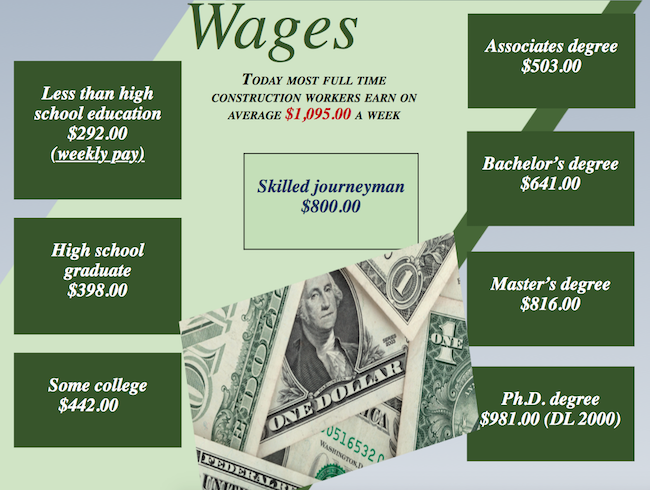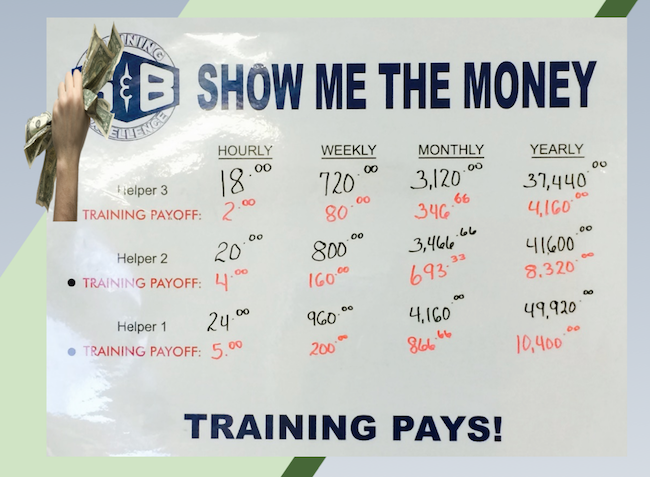The following is a presentation Mike Stilley, Director of Training and Development at S&B Engineers and Constructors, did for the Gulf Coast CTE Regional Career and Technical Education Directors’ meeting in September.
Shortage of Qualified Workers Has Reached Acute Proportions
There is an acute shortage of skilled craft professionals in our industry. We absolutely need career and technical education. You probably have heard this for a long time: yes, there really is a shortage of workers in the construction industry. There has been a shortage for a long time. You have a lot of resources in your school and there are opportunities for young people to get into the industry. When I was in high school, and it might take a grey head here to know what I am talking about, we had shop classes. These shop programs, however, have long dropped off the radar. You know who failed? The construction industry failed. We didn’t take our issues seriously enough. The situation is a lot worse now than it was ten years ago.
Asian, European, and South American Countries Place Higher Value on Achievement of Trade Skills
Asian, European, and South American countries have actually moved ahead of us in taking action in getting students into the skilled trades programs. I am hoping to begin to build a strong rapport with you. There are a lot of ongoing efforts right now with the Association of Builders and Contractors (ABC), the Construction and Maintenance Education Foundation (CMEF), the Association of General Contractors (AGC), and the National Center for Construction Education and Research (NCCER). We have been working on an image summit campaign. Our industry is not the most attractive. When you talk to high school students about the construction industry, do you know who they think we are? Highway Construction. The guys standing in the street stopping you with a sign saying “Hold up, we’ve got construction going on.” They do not have a clue that if they drive down Highway 225 and see those big facilities on the side of the road with all those pipes going everywhere, that those are refinery and chemical plants, with great jobs they can do to build those things. We have got to catch up to the game.
Studies Show Students Who Participate in CTE Programs Need 20% Less Formal On-The-Job Training Than Those Without CTE Backgrounds
Studies show that students who are participants in Career and Technical Education (CTE) high school programs in the United States need 20% less on-the-job training. That means a lot to me as a contractor. Building a refinery is a dangerous job. When we talk to these young people, we want to know what they have done. The more experience they have, the better candidate they are. Now most people would argue, “Well wait a minute, most of the time their grades aren’t all A’s." We don’t look at their report card as we want people who want to be in our business. There are a lot of young people out there that need help learning about our business who will grow to be very successful.
Students Should Seek Employment When In School
Studies also show that companies prefer hiring individuals that have been employed while attending school. High school students with work experience, even from a part-time job, are of interest to me. It shows me that they have enhanced their basic skills; they've learned problem solving, decision making, and have the ability to prioritize tasks. They are a priority for us.
Forecasters Say We are on the Verge of Something Big
The industry forecasts that we are in for something big, but we are limited by the number of craft professionals. We are not connecting these opportunities to the people we need. We thought we could solve our problem a few years ago by bringing in people from overseas. If you have any relationship with anyone doing so, they will probably tell you that it's not working out real well. The United States has actually reduced the number of foreign workers we can bring in. We have the ability to train our people better today than we have ever had. We have programs such as the NCCER curriculum, facilities, and associations like ABC. There are career tech programs at some of these high schools that I know personally do an extremely good job. What I am asking you to do, and I will be the first one to step up, is give us a call ask us for help. Challenge me to step up and be a part of something that helps you be more successful, and I hope for that opportunity too.
Most Challenging is Hiring Talented, Qualified People
The most challenging of all of this is hiring qualified people. That’s our job. That’s what we must be planning for right now. Those opportunities are out there right now for those young people, and it’s tough to get them in those plants when they are fresh out of high school. That’s why they have to be diligent on that.
This is some information I found back in 2000 from the Department of Labor, and what it says here, if you look at those numbers, this is the average wage of a 40-hour work week.
Show your students exactly how much money they’ll earn if they get into our free training program. If you are helper 3, you are going to come in at 18 bucks an hour. This is what it looks like on an hourly, weekly, monthly, or annual basis. They can see, those leveled success programs we have built in there takes them about three months to make a level change. So, do the math. Today our top journeymen will make between 34-36 dollars an hour out on these jobs that we are working.
We have got to share with students this opportunity. We as an industry need to do a better job, and I am hoping that through the efforts with the industrial counsel and working really hard with ABC, and through the career tech programs, we get there because we need your help. Thank you so much.




